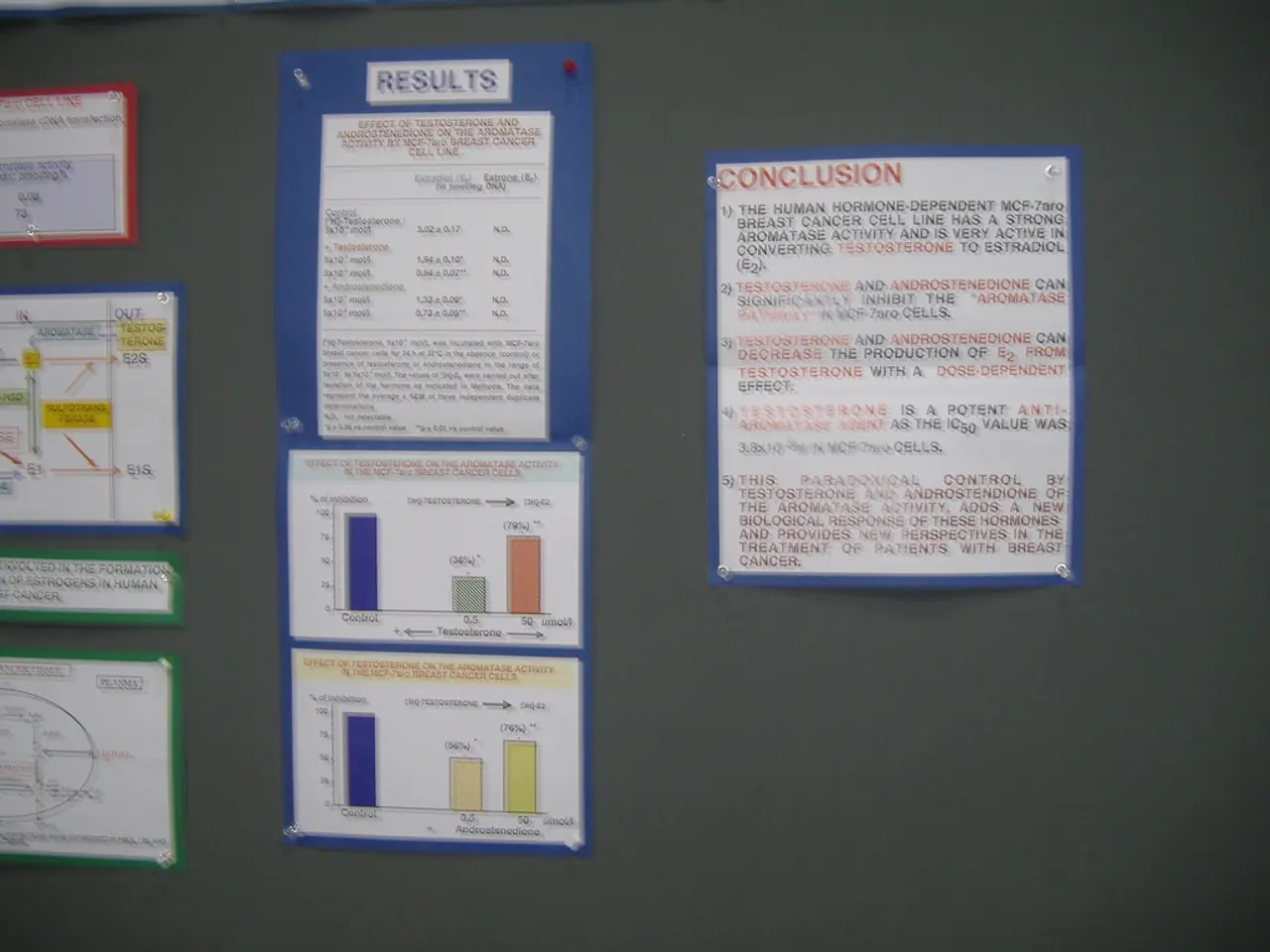Customs agreement perceived as difficult compromise by Export Association
The 15% Tariff Agreement Between EU and US is a landmark deal that aims to address a customs conflict, but it comes with potential implications for Germany's economy, trade, and job market.
- German Export Industry: As a significant exporter of cars, machinery, and semiconductors to the US, the 15% tariff on most EU exports could impact the competitiveness of German goods in the US market. This could potentially result in lower export volumes [2][3]. However, the tariff stabilization across most sectors may provide some certainty, enabling companies to plan their pricing and production strategies more effectively.
- Supply Chains: The agreement includes provisions to enhance supply chain resilience and economic security. This includes cooperation on investment reviews, export controls, and addressing non-market policies of third countries. These measures aim to strengthen transatlantic supply chains by reducing non-tariff barriers and improving coordination, which could benefit integrated German-US supply networks despite increased tariffs [1].
- Job Market: The impact on jobs in Germany may be mixed. While reduced export demand in US markets for German products could negatively affect jobs in export-oriented sectors, the deal also promotes expanded US exports to Europe, military procurement by the EU from US suppliers, and regulatory cooperation. These factors might create or preserve jobs indirectly by stabilizing trade relations and fostering innovation [1][2].
In summary, while the 15% tariff introduces additional costs for German exports to the US, the accompanying agreements on trade facilitation, supply chain resilience, and sectoral cooperation aim to mitigate potential negative effects on German industries and jobs. However, the political nature and future legal implementation of the agreement may further influence these outcomes [3].
The BGA, the Federal Association of Wholesale, Foreign Trade, and Services, has expressed concern about the tariff increase, stating that it poses an existential threat to many traders in Germany. The German export industry has described the agreement as a painful compromise [4].
The European Union and the United States reached this agreement following a top-level meeting in Scotland, with EU Commission President Ursula von der Leyen and US President Donald Trump announcing the agreement [5]. The deal comes amidst concerns about changes in supply chains due to the agreement [6]. Prices are expected to rise as a result of the agreement between the EU and the USA [7].
[1] https://www.bloomberg.com/news/articles/2021-06-16/eu-us-deal-on-tariffs-is-a-step-forward-on-supply-chain-resilience [2] https://www.ft.com/content/5e627d1a-bff6-428a-a341-665351c41f7e [3] https://www.reuters.com/article/us-eu-usa-trade-idUSKCN2D220A [4] https://www.reuters.com/article/us-eu-usa-trade-germany-idUSKBN2D21JK [5] https://www.reuters.com/article/us-eu-usa-trade-idUSKCN2D21JM [6] https://www.bga.de/presse/pressemitteilungen/2021/06/16/bga-bekommt-mitteilung-zu-einem-europaeischen-handelsabkommen-mit-den-usa [7] https://www.wsj.com/articles/europe-and-u-s-reach-deal-to-avoid-trade-war-11623821341
- The Economic and Social Policy implications of the 15% Tariff Agreement Between EU and US for Germany could result in challenging conditions for the export industry, particularly for sectors like cars, machinery, and semiconductors, as the increased tariffs might reduce export volumes and impact competitiveness.
- In terms of Finance and Business, provisions in the agreement related to supply chain resilience and economic security could potentially offset some negative effects on German industries, by reducing non-tariff barriers, enhancing cooperation, and improving coordination in transatlantic supply chains.
- The impact of the agreement on Politics and the general-news landscape in Germany may significantly influence public opinion, particularly among traders and businesses, as expressed by the Federal Association of Wholesale, Foreign Trade, and Services, which has labeled the tariff increase as an existential threat.




